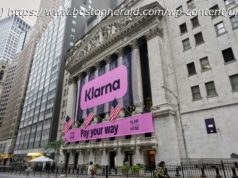Many consumers fear just that, but retail analysts differ.
The $2.1 billion acquisition of Versace by Michael Kors Holdings Limited announced this morning generated an immediate response from consumers—much of it negative. Any change concerning a beloved brand is bound to rouse some rabble on Twitter, of course, but in this case many of those consumers have struck on the critical question that Capri Holdings Limited—the new corporate name that the combined brands will take—will have to confront: Will the acquisition benefit Kors at the expense of Versace?
A goodly number appear to think so. “We know Gianni didn’t die for this,” tweeted Scott Timlin, a former MTV star, referring to the designer’s 1997 murder by a mentally disturbed fan. The essential objection stems from the fact that, while both brands are technically in the luxury category, Michael Kors is what some in the trade calls “masstige” (prestige for the mass market), while Versace is a storied Italian couture house with the reputation and prices to match. “Time to get Versace at your local TJ MAXX and Marshall’s,” tweeted freelance writer Danielle Ayoka.
“That’s super disgusting and sad even,” complained Walter Miller, who co-stars on VH1’s Black Ink Crew.
View this post on Instagram
A post shared by Michael Kors (@michaelkors) on Sep 22,2018 at 7:05am PDT
Criticism hurts—but this criticism has some historical grounding.
A decade ago, Michael Kors was a red-hot brand. Its sophisticated yet accessible sportswear and accessories were flying off department store racks. “Michael is firing on all cylinders,” Macy’s CEO Terry Lundgren told The New York Times in 2008. “This is his moment.”
Unfortunately, Kors made too much of his moment, going on an expansion tear that landed his apparel in discount stores and quickly diluted his brand. Nowhere was that dilution more visible than with Kors’ handbags, which in their ubiquity acquired the reputation of luxury for the suburban Subaru-mom set. “Michael Kors handbags are everywhere,” said The Washington Post in 2015, “—and that’s a problem.”
By May of last year, Michael Kors was slamming on the brakes, closing 125 stores and curtailing the promotions that had sullied its luxury image in the minds of so many consumers.
So now comes the Versace acquisition and, with it, the many who are fearing that Kors will notch the Italian brand down to the level Kors currently occupies. Buying an esteemed house like Versace—started in 1978 when the late designer Gianni Versace debuted his first clothing in Milan—has obvious benefits for Kors, which plans to build the brand’s marketing, increase its store count from 200 to 300 and bump its revenues up to $2 billion. But will Versace lose its luster under Kors’ ownership?
Bob Phibbs, CEO of New York-based consultancy the Retail Doctor, doesn’t think so. Kors—which has already been on a turnaround track—“knows its customers and is strategically collecting brands like Versace instead of fragmenting itself,” he said. “They know luxury brands are about creating a feeling and making shoppers feel like they matter. When the company became fed up with discounting at department stores a couple of years ago, they started to cut them out of their strategy. Michael Kors made it clear that you can’t discount luxury. They’re an upscale brand investing wisely.”
It’s worth pointing out that mass-market companies owning rarified luxury brand is nothing new. While many consumers are unaware of the fact, Volkswagen owns Bentley, for example. Budget-friendly cruise behemoth Carnival happens to own the legendary Cunard line. Grey Goose vodka is a property of Bacardi Limited, and so on.
The difference here is that Kors’ purchase of Versace is very public and very visible, and many consumers are very upset. Fashion is fickle, and Versace might come out worse for the wear from this deal.
“The acquisition of Versace by Micheal Kors is a pretty large departure for this company and, depending on how the Versace brand is managed, could pose risk to Versace’s loyal customers,” said Bruce Winder, co-founder and partner of the Retail Advisors Network. “Michael Kors has been on a bit of a buying spree, picking up Jimmy Choo [for $1.2 billion in July of 2017.] But what makes a company successful at the middle ground of the market (MK) may not be what makes a company successful at the high end of the market. The industry has been going through a consolidation of late but sometimes that spells trouble for brands as their DNA gets morphed, whether intentional or not into something too different.”
Share
https://adweek.it/2NALrEG copy
Robert Klara
@UpperEastRob
Robert Klara is a senior editor for Adweek, where he specializes in covering the evolution and impact of brands.






